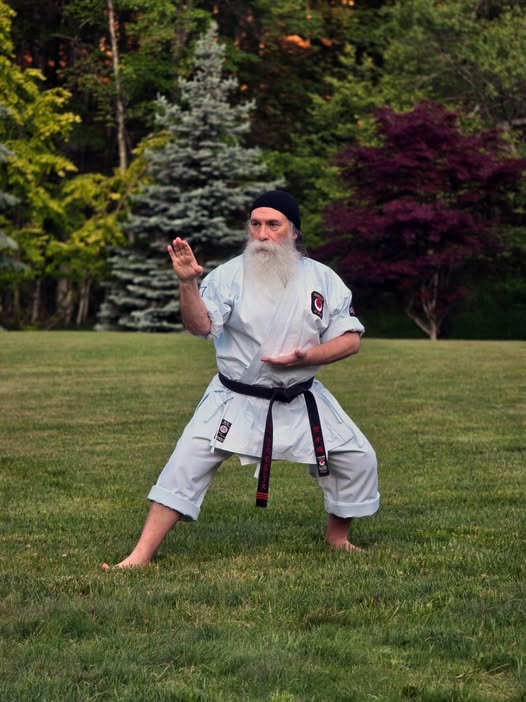“For many, it is puzzling, to say the least, that karate-do, a martial art based on physical confrontation, bodily discipline, and combat technique, originated in Buddhist monasteries, particularly those shaped by the meditative sobriety of Zen. The contrast seems insurmountable: a practice associated with confrontation within a tradition that exalts nonviolence, compassion, and detachment. But this apparent paradox does not arise from the fact itself, but from the way it is interpreted. The scandal lies not in the coexistence of asceticism and combat, but in the conceptual horizon that prevents us from conceiving their articulation without falling into contradiction. A fundamental misunderstanding persists here: non-violence is confused with inaction, spirituality with impotence, peace with withdrawal. From this perspective, the battle of Kurukshetra in the Bhagavad Gita is also censured, or the biblical account of Israel’s entry into Canaan is objected to, as if all conflict invalidated in advance any claim to sacredness. Combat is condemned without inquiring into the energy that motivates it; the sword is discarded without considering the will that directs it or the meaning that guides it.
The decisive factor, however, is not the external gesture, but the psychic economy that engenders it. Violence is not defined, in its essence, by the act of hurting, but by the inner logic that triggers it. It is not the blow that constitutes it, but the fear that precedes it: fear of loss, of helplessness, of the collapse of an identity that has not found rest. All aggression functions, in this context, as a reflex response of a split self, which perceives itself as both fragile and besieged, and which defends itself because it experiences the world as a persistent threat. As long as this structure is not recognized, the conflict will repeat itself, projected outward or withdrawn into itself. In this sense, karate ceases to be a technique of opposition or a codified competition. Experienced as a path, it becomes an instrument of inner inquiry. Combat no longer represents an end, but an opportunity: the body, reflexes, impulses, and stops become stages where the configuration of the self becomes visible. Each reaction exposes a way of being. The attentive practitioner does not fight to defeat the other, but to intercept—at the very moment they emerge—the mechanical responses that arise from fear and the desire for control. Violence is not repressed: it is observed, and in observation it finds its dissolution. The peace that springs from this work is not an induced emotion, an idea or concept of peace, nor a pleasant state conditioned by silence or external calm. It does not crumble in the face of shock or depend on the environment. There is no experience here that must be sustained, but rather an evidence that imposes itself when the need for self-assertion ceases. It is a way of inhabiting the present from a point that does not revolve around the separate self. This peace does not arise from the resolution of tension, but from the dismantling of the very structure that generated it.
The genuine karateka does not seek to impose himself on his opponent. He seeks the perception within himself of the force that drives him to want to impose himself. When that drive is extinguished, there is no longer any defense to sustain or affirmation to pursue. Even in the heat of combat, even when the body responds with precision, it is possible to maintain an intact stillness. It is not a matter of self-control but of no longer being carried away by fear.
The wisdom of the ancient path of “the empty hand” consists in exalting strength, not in opposing peace and struggle as irreconcilable spheres. It consists in understanding conflict from another angle: as a scene where the dynamics of the independent self are revealed, and in certain cases, where those dynamics can be stopped. Authentic peace is not achieved by avoiding confrontation, but by inhabiting it without getting caught up in its logic. When fear is unanchored, violence dissipates. Not because it has been defeated, but because it has lost its raison d’être.”
Prabhuji




